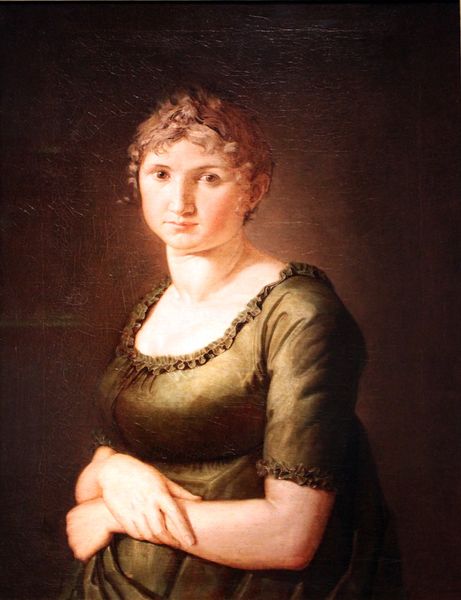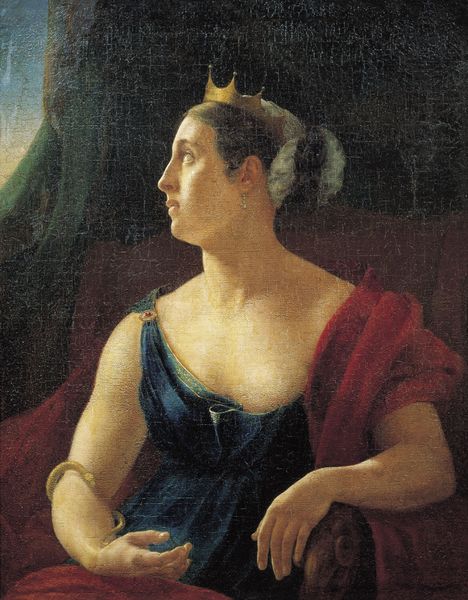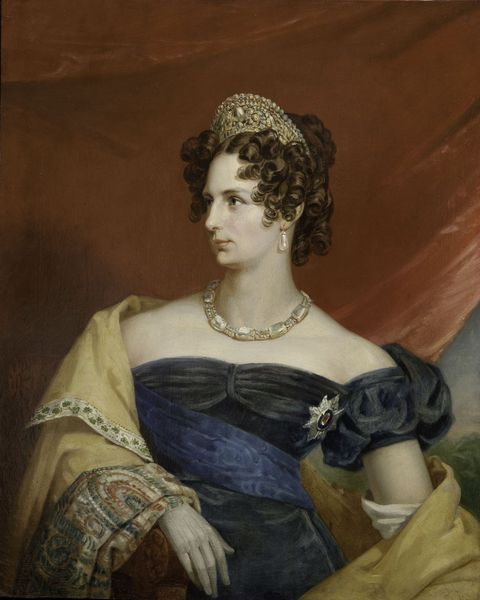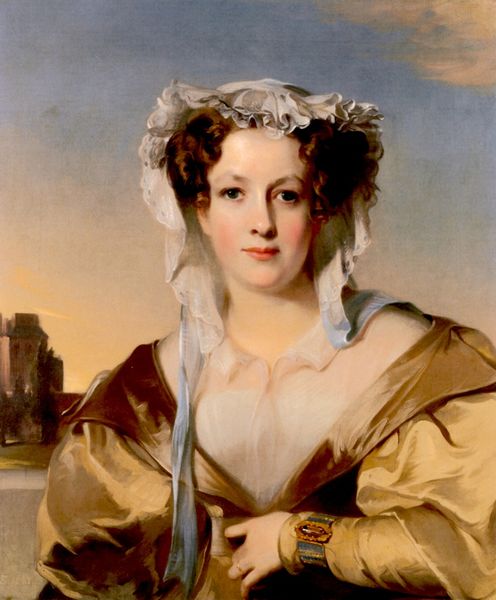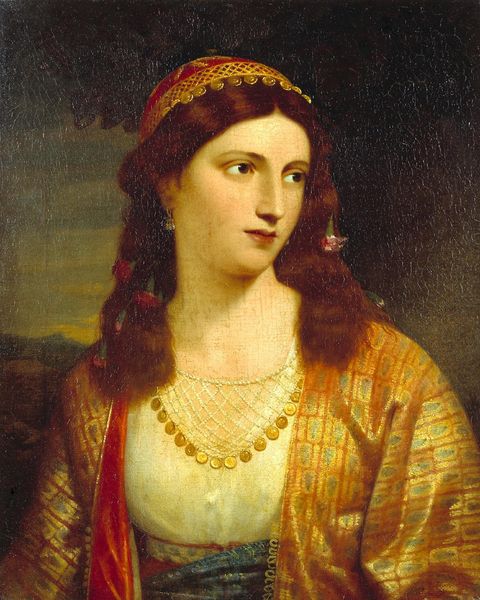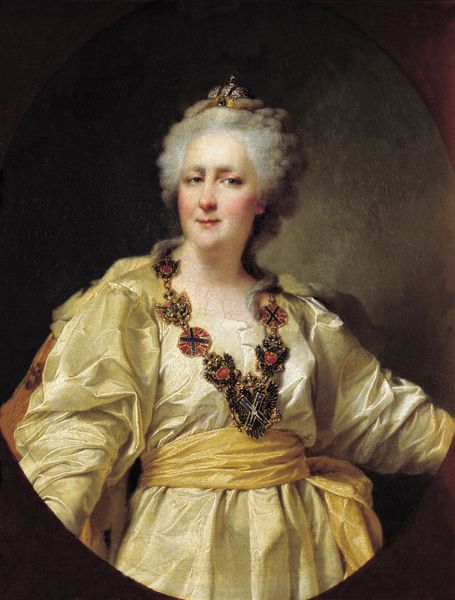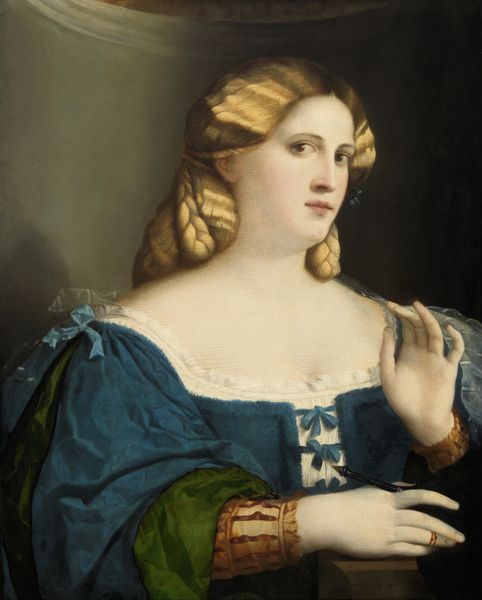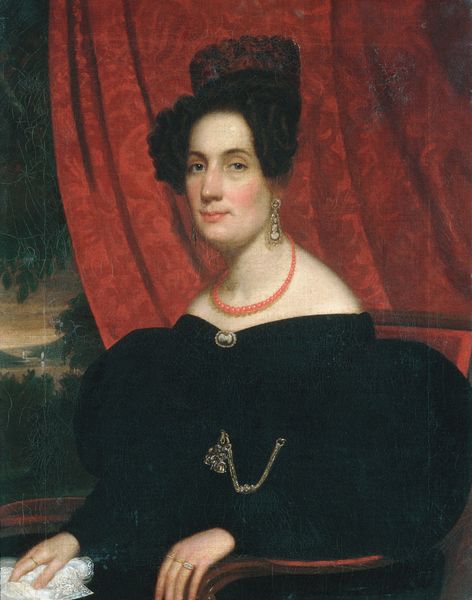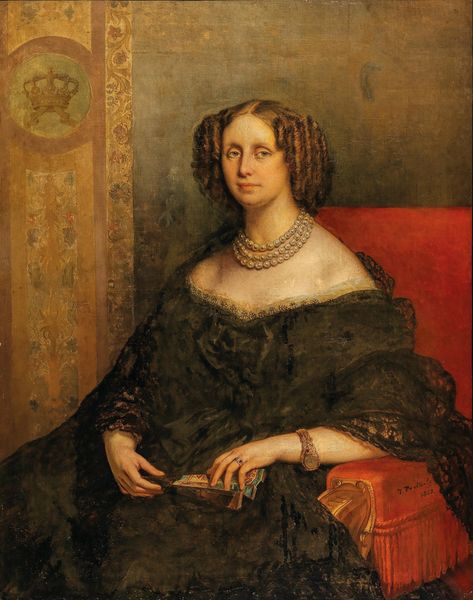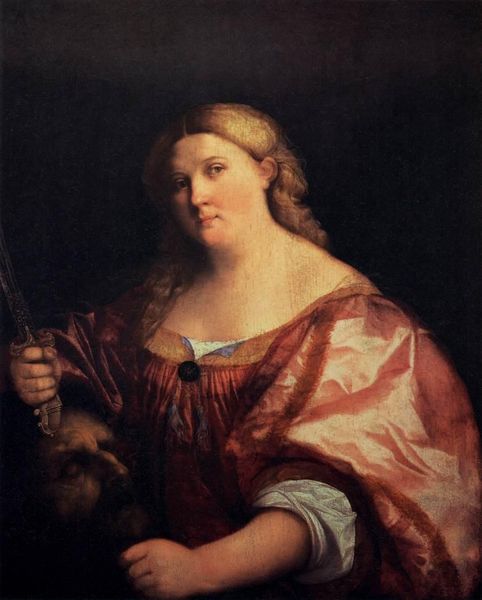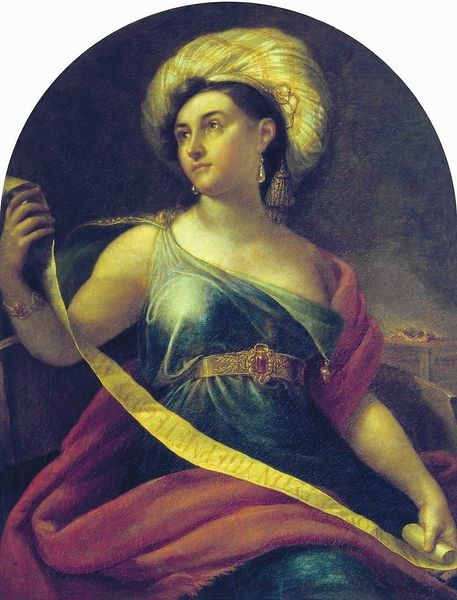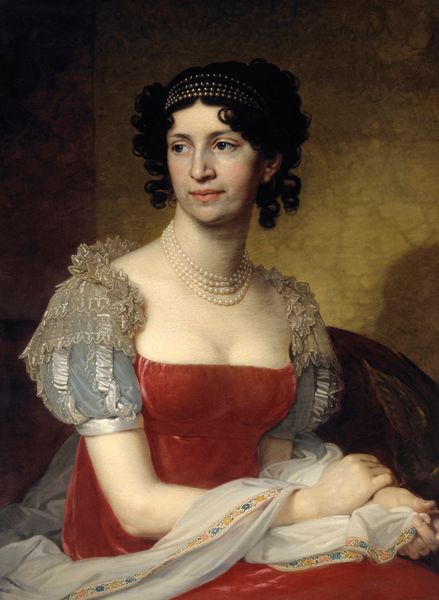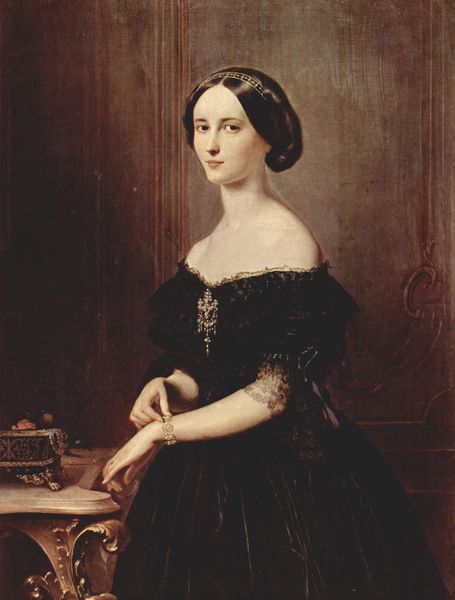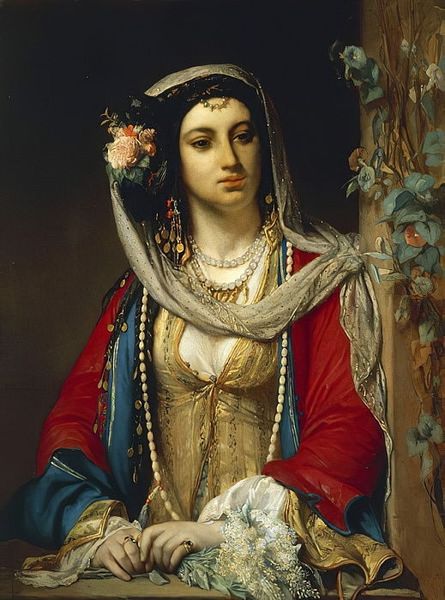
painting, oil-paint
#
portrait
#
painting
#
oil-paint
#
romanticism
#
genre-painting
#
history-painting
#
academic-art
#
realism
Dimensions: 81 x 64 cm
Copyright: Public domain
Editor: This is Orest Kiprensky's "Portrait of Ekaterina Avdulina," an oil painting. There's a certain… melancholy about it, a stillness. What strikes you most when you look at it? Curator: I'm immediately drawn to the socio-political context. Kiprensky painted this during a period of immense social upheaval in Russia. The portrait aesthetic, while seemingly celebrating individual beauty, also reinforces a rigid class structure. Who gets memorialized and how are political acts. Do you notice the symbols of wealth – the pearls, the fabrics? Editor: Yes, they stand out. The light catches them so well. Curator: Exactly. Now consider the role of women in that society. They were largely confined to domestic spaces, their identities often defined by their marital status and social standing. How might Avdulina's expression, her slightly averted gaze, speak to this confinement, or perhaps a subtle resistance? Editor: I hadn't thought of it that way. I was focused on the artistic skill, the details. The slightly stormy landscape glimpsed through the window, the flower. Curator: The flower in a glass—a poignant detail! It’s beauty contained, much like Avdulina herself. But the landscape, turbulent yet distant, hints at a world beyond the domestic sphere. This contrast is really compelling. Could that suggest both limitation, and an unrealized agency. What do you make of that? Editor: I think that's a powerful reading, thinking about her position in society, her potential. I was looking at it through a purely art-historical lens, technique and style, but I see it differently now. Curator: Art is never created in a vacuum. Understanding its historical and social roots can reveal so much about not just the artwork, but the society and power dynamics it reflects. The act of portraiture becomes political. Editor: That's really changed how I see portraiture. Thanks!
Comments
No comments
Be the first to comment and join the conversation on the ultimate creative platform.
